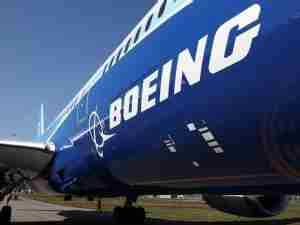The International Air Transport Association (IATA) left this year's global airline profit forecast unchanged at $3 billion, or 0.5 percent of industry revenues, at a summit of airline chiefs being held this year in Beijing.
That stable outlook, however, masks a widening gap between regions with only North and South America set to improve, as well as worries that cargo traffic might take a hit from the economic crisis spilling over from Europe.
The outlook echoed expectations previously reported by Reuters.
The Geneva-based grouping of some 240 airlines regularly issues forecasts for an industry whose activities are seen as a barometer of indicators such as business confidence and trade.
Director General Tony Tyler told IATA's annual meeting that business was improving for American carriers, many of whom have been keeping a tight lid on capacity
"The rest of the world is seeing reduced profitability. For European carriers, the business environment is deteriorating rapidly resulting in sizable losses," Tyler said. The pessimism stems mainly from the worsening debt crisis in Europe, he noted.
As the industry gathered at the weekend, euro zone finance ministers agreed to lend Spain up to 100 billion euros ($125 billion) to shore up its teetering banks.
China said it hoped the move would help contain Europe's debt crisis.
The head of one of Europe's largest airlines, Dutch KLM, meanwhile, urged the region's leaders give a rapid signal of confidence to help dispel the effects of the European financial crisis.
"I hope they solve (the crisis) rapidly or that we see clear messages that confidence is coming," KLM's chief executive Peter Hartman told Reuters on the sidelines of the IATA meeting.
Cargo Weakness
Airline leaders said they were worried about weakness in global cargo traffic going to and coming from Europe.
Industry executives and economic analysts generally see airline cargo traffic as a leading indicator of the airline business as a whole, as well as an overall reflection of global trade.
Japan Airlines (JAL) chairman Masaru Onishi said the airline's Europe-bound cargo volume from Japan and the rest of Asia was down about 5 percent from a year ago, continuing a sluggish trend that began in April.
"We don't consider the slide in cargo volume as alarmingly large... (but) it is true there is some sluggishness emerging," reflecting Europe's economic crisis, Onishi told a small group of reporters on the sidelines of the IATA meeting.
John Slosar, chief executive of Cathay Pacific Airways , whose cargo business fell more than 10 percent in the first four months of this year from the same period a year earlier, echoed the thoughts of the JAL executive.
Commenting on Hong Kong-based Cathay's overall cargo business, Slosar said: "I have not seen anything turning up."
Cathay is the world's largest cargo carrier, and its inbound and outbound cargo business with Europe is a major share of its overall freight operation.
Looking three months ahead, KLM's Hartman said that bookings for premium passenger air travel were holding up relatively well, but cargo was being hit by the preference of many customers to switch to cheaper sea routes.
IATA almost doubled its forecast for European airline industry losses in 2012 to $1.1 billion, from its previous forecast of a $600 million loss released in March.
Conversely, it gave a hefty boost to its forecast for North American industry profits, to $1.4 billion from a previous estimate of $0.9 billion.
"While the forecast is built on the market's expectation that the sovereign debt crisis in the eurozone will intensify, the risk of more severe economic weakness in the event of a broader eurozone banking crisis could easily wipe out industry profits," IATA said in a statement
On the positive side for airlines, traffic has been stronger than expec








